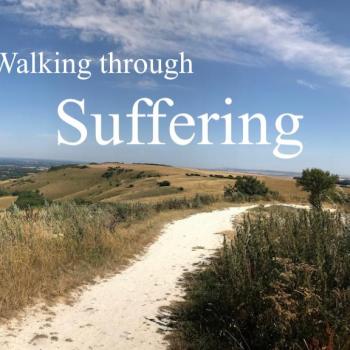I will share slightly briefer notes than usual on this morning’s talk—my fingers are getting tired!
 Don Carson began his talk on 1 John 3 by making a claim that it is actually only because of the Bible that religion and morality were first strongly linked together. It is only because of Christianity that our culture believes that we should be consistent in our behavior. Sin is broad. Sin is not just lawlessness, it is also a lack of faith that you will be able to not do something you want to do. Because law is of God himself, breaking the law is devaluing God. But, of course, we cannot claim to not sin—even as Christians.
Don Carson began his talk on 1 John 3 by making a claim that it is actually only because of the Bible that religion and morality were first strongly linked together. It is only because of Christianity that our culture believes that we should be consistent in our behavior. Sin is broad. Sin is not just lawlessness, it is also a lack of faith that you will be able to not do something you want to do. Because law is of God himself, breaking the law is devaluing God. But, of course, we cannot claim to not sin—even as Christians.
In the first century sonship was both familial and behavioral. Most sons and daughters ended up doing what their parents did. If your father was a baker, you became one. Jesus became a carpenter because his dad was a carpenter. So, for example, when Jesus says that people are “children of the devil,” he means that we are so much like the devil it is as if the devil is our father, not that demons mated with our mother! Therefore, in order to be called a “child of God,” we must act like the children of God. No one who is born of God sins. This is in the present tense, and it sometimes has the force of continuity, so we often translate it as “we don’t continue to sin,”—i.e. we cannot go on sinning. We tend to soften this to become “we cannot practice sin.” There is some truth to that, but we should not soften the sharpness of John’s language. John is shockingly stark in what he says.
There are grades of sin, but it is all of the same stuff. There is a stark choice between this and the life to which Christ has called us—that of laying down our lives for others like Jesus did. We should love, and not love merely with words, but with our actions. If we pray and also watch porn, how can we expect an answer?
We are then told to test the spirits. In the Old Testament, one of the tests was whether something that was said came to pass, but also whether it was consistent with Scripture. Christians can be easily gullible. We don’t always discriminate and exercise discernment. We have to recognize that people and movements are sometimes mixed bags. We need to sift and weed out what is unhelpful, but accept the good.
We see that in the context of denying Christ’s coming in the faith by the gnostics, the key test to discern spirits was whether they believed Jesus came in the flesh. What is interesting is that elsewhere in the Bible there are other tests—for example, if the spirit declares “Jesus is Lord.” So often what is being denied in different generations varies. We need to be careful that we understand and are clear about issues that are being denied in our generation.
We recognize the spirit of truth by those who are “with us.” This can be dismissed as merely a sectarian spirit. No, we are speaking about the gospel which was taught by the first Apostles. John is one of those initial Apostles.
The tests of obedience, love, and truth are strong. Nowhere are they stronger than in verse 9. John is saying that we cannot sin if we are born from God. Yet in chapter 1 he has already said that if we say we haven’t sinned then we make God a liar. It’s not that we cannot sin, it is that it is inappropriate for us to sin. If we sin, we should not excuse it, but go for forgiveness. We should fight against it.
















